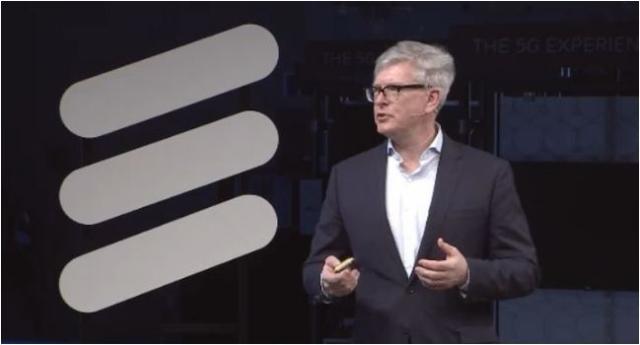 Ericsson CEO Borje Ekholm has outlined the company’s top business priorities for 2017 and beyond in the latest annual report.
Ericsson CEO Borje Ekholm has outlined the company’s top business priorities for 2017 and beyond in the latest annual report.
ALSO READ: Live news from Mobile World Congress 2017
As per the latest strategy, Ericsson will have three new financial reporting segments, Networks, IT & Cloud and Media from January 1, 2017. The addressable market will see a huge jump in coming years. Ericsson estimates its total addressable market in 2016 was $210 billion, growing to $215–225 billion in 2018, corresponding to a CAGR of 1–3 percent.
 “One of my main tasks in 2017 is to create a long-term strategic plan and execute on that. Emphasis will be on refining the strategy to focus investments into areas where we both can and must win. We need to ensure that Ericsson remains at the forefront of technological development – across our portfolio and markets,” said Ericsson CEO Borje Ekholm.
“One of my main tasks in 2017 is to create a long-term strategic plan and execute on that. Emphasis will be on refining the strategy to focus investments into areas where we both can and must win. We need to ensure that Ericsson remains at the forefront of technological development – across our portfolio and markets,” said Ericsson CEO Borje Ekholm.
Networks
The focus is on managing access networks, including the development of hardware and software for next generation radio access and transport networks.
The competitors in networks business are Huawei, Nokia and ZTE. Ericsson is expecting a significant revenue increase in networks business despite the continued roll out of 4G and 3G networks and the initial action in 5G.
The addressable market for networks business is estimated to be $100 billion in 2016, including both products and services. The addressable market for Networks, which is a combination of the mobile infrastructure market and the related telecom services market, is estimated by Ericsson to decline by 0–2 percent CAGR 2016– 2018.
The overall RAN (Radio Access Network) equipment market is estimated by Ericsson to have declined by 10–15 percent in 2016. Ericsson is estimating that the RAN equipment market will decline by 2–6 percent in 2017.
 IT & Cloud
IT & Cloud
Ericsson said its IT & Cloud business has two business units: IT & Cloud Products and IT & Cloud Services. The focus in IT & Cloud is to help telecom operators and selected enterprises through the digital transformations ahead. This is handled mainly in three domains: Support Systems (OSS and BSS), Telecom core and IT Cloud.
Ericsson’s competitors in IT Cloud services will be Accenture, Capgemini and IBM. In OSS and BSS, Ericsson will compete with Amdocs, Huawei, Netcracker and Oracle. Huawei and Nokia will be the competition to Ericsson in telecom core business. Cisco, Dell, HPE and IBM will be competing with Ericsson in IT & Cloud Infrastructure.
Ericsson said the IT & Cloud business will focus on creating opportunities for operators to unlock the full potential of mobility, mobile broadband, analytics, IoT and cloud. Digital transformation for operators is related to the support systems domain.
The addressable market (products and services) for IT & Cloud (telecom operators only) in 2016 is estimated by Ericsson to be approximately $100 billion, with an estimated growth rate of 5–7 percent CAGR 2016–2018.
Ericsson believes that the virtualization of network functions and the related horizontal network architecture creates a market for cloud transformation and convergence of IT and networks. In addition, new cloud technology allows any enterprise to build cloud infrastructures to support their digital transformation.
Media
Ericsson estimates that its addressable market in Media will grow 9–11 percent CAGR 2016–2018.
Ericsson said its customers in media business will be broadcasters, cable TV operators, mobile and fixed operators. Main competitors include Accenture, Akamai, Arqiva, Cisco, Encompass, Harmonic, Huawei and Nokia.
Borje Ekholm, who spent nearly 10 years in the board of Ericsson, is undertaking a major restructuring exercise for the transformation. The new Ericsson has significant growth opportunities because it will directly with several world-class telecom equipment companies and IT products and service companies. Ericsson’s IT presence in enterprises will be limited. Ericsson aims to work with communication companies in a larger role.
Baburajan K
[email protected]





